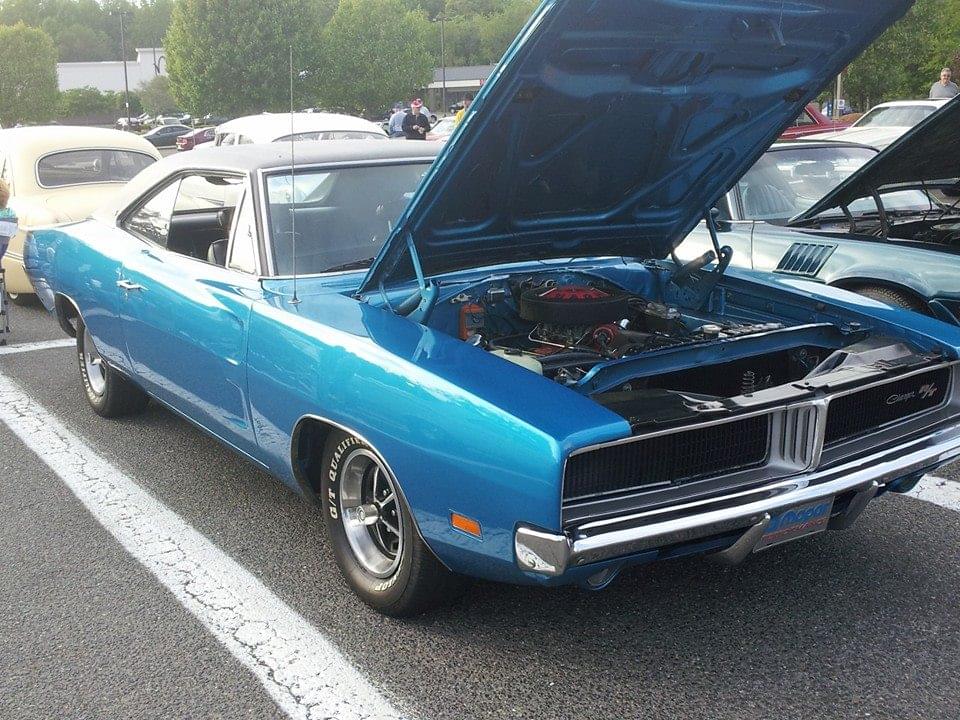Car: Dodge Charger R/T
Year: 1969
What makes it special: Charger was produced by Chrysler’s Dodge Division from 1966 to 1978, and was based on Chrysler’s B-Platform. The 1969 model year brought few modifications. Exterior changes included a new grille with a center divider and new longitudinal taillights, both designed by Harvey J. Winn. A new trim line called the Special Edition, or SE was added. This could be available by itself or together with the R/T, thus making an R/T-SE. The SE added leather inserts to the front seats only, chrome rocker moldings, a wood grain steering wheel, and wood grain inserts on the instrument panel. A sunroof was added to the option list, but was ordered on only 260 Chargers. The bumble bee stripes returned as well, but were changed slightly. Instead of four stripes, it now consisted of a wide stripe framed by two smaller stripes. In the middle of the stripe, an R/T cutout was placed. If the stripe was deleted, a metal R/T emblem was placed where the R/T cutout was.
What made it famous: There were two different 383 engines available for the 1969 model year: 2-barrel and 4-barrel. The 2-barrel was rated at 290 hp. The 4-barrel engine was rated at 330 hp and was identified by the “pie tin” on the air cleaner as “383 / FOUR BARREL”. The 330-hp engine was unique to the Charger model in 1969. While this engine was available with an un-silenced air cleaner option, it differed internally from the 335-hp 383 “Magnum”. In 1969 the B-series engines were all painted Chrysler Engine Turquoise with the exception of the 383 4-speed, 440 Magnum, These engines were painted Chrysler High-Performance Orange. Differing from the 426 Hemi which was painted Street Hemi Orange. The 335-hp 383 Magnum engines were also painted Chrysler High-Performance Orange. The 383 Magnum did not appear in a Charger body until 1971. Differences between the 330-hp 383 4-barrel and 335-hp 383 magnum were mostly internal. Both versions used the Carter AVS carb and the larger exhaust manifolds from the 440 Magnum engines, but the Magnum had a windage tray in the oil pan, a different camshaft profile, and different valve springs.
Why I would want one: I can sum this up in three ( Not one, not two, but three…THREE ) words: “It’s a Charger!”
Fun fact: The television series The Dukes of Hazzard from 1979–1985 featured an orange 1969 Dodge Charger named The General Lee. “General” sported the Confederate battle flag painted on the roof and the words “GENERAL LEE” over each door. The windows were always open, as the doors were supposedly welded shut for racing, and the actors would do a window slide to get in and out. Also, when the horn button was pressed, it played the first 12 notes from the de facto Confederate states anthem “Dixie”. The car performed spectacular jumps in almost every episode, and the show’s popularity produced consumer re-interest in the car.

